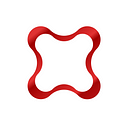How to position yourself into a right niche as UI/UX designers
Even though we often talk about how we all have our own uniqueness as designers and creators in reality most of us end up following each other. This has somewhere resulted in similarities in problems, approaches, and most importantly solutions that most of the designers have to offer today. What went wrong and how can we retain and utilize the uniqueness that a designer possesses?
One way to do this could be knowing what your niche as a designer is and how you can bring new and better solutions to the table. Before understanding where you fit in, it’s important to self-evaluate yourself and figure out what are your strengths and weaknesses as a designer.
What’s a niche?
Google defines it as “a specialized segment of the market for a particular kind of product or services”. There is always an existing niche or a niche that you create, in simple words it’s an area of specific expertise. In this context, it’s knowing what you are best at and making it your niche. In order to know your niche, it’s important to know what you enjoy doing and what drives the designer in you.
Tips to self-evaluation
Be a learner
On the initial days of your first job make sure you pick a job that brings opportunities and challenges for you to explore your skills. This will help you understand what domain, platform, technology, and other factors will serve as the basis of discovering which niche suits best you.
Explore options
You can always look up to your seniors or have discussions in design communities to understand what exactly a certain job role demands. This will also help you broaden your arena of what opportunities are available for you based on your skills and knowledge. You may come across new things too, always be ready to try it and see if that interests you or not.
Understand you are different
It is easy to get carried away and influenced by great work, personality, monetary benefits, and other things. As designers, it’s important to understand that you are different and what worked for someone else might not work for you. Accept others’ personalities but don’t let it divert you from your niche. It’s one of the reasons a huge segment of designers feel lost in identity crises after some point in time.
How to find your niche?
Now when we have understood what a niche is and how self-evaluation can help you position yourself to a certain niche, let’s see how you can find your niche.
Role positioning
There are various job roles that you can work on. Different job roles have different tasks, responsibilities, requirements, and feel, however, this role may interlink and you might end up performing multiple design roles also. You can position yourself based on a certain role that satisfies your career needs. Some of the prominent roles are UI UX designer, UI designer, Motion designer, Information architect, UX writer, etc.
Platform positioning
As the name suggests Platforming positioning refers to getting your expertise in one platform. As designers, you can work on various platforms but it is suggested that you master one platform. It will not only help you find your niche better but will also help you be the master of one trade because you can always be the jack of all trades in the design industry. For example, if your experience and interest lie in an on-demand service platform like Uber, Heal, Urban claps, or any other you can get your expertise in this and make it your niche.
Horizontal positioning
We all know designers are meant to solve problems. So what if you can use your expert problem-solving skills for a specific type of problem? Great right! As a UI UX designer, you can always help different companies and creators solve certain problems that you are specialized in. Even though it is one of the most common ways UX designers position themselves, it’s always viable too.
Vertical positioning
Unlike horizontal positioning, vertical positioning is where you design for one particular industry. It might be a time taking process to actually be able to position yourself in this niche as getting expertise takes time but you will be specialized in a particular industry for sure. Once you are ready, you can always design for that industry and grow with it.
Personality type positioning
There are various personality types that can affect the job nature and work efficiency of an individual. Some of the most common personality types are T-shaped, X-shaped, I-shaped, etc. Popularized by IDEO Chief Executive Tim Brown the term “T-shaped person” defines people with excellent knowledge and skills of one area with collaborative working sense. An X-type individual is a multi-tasker and manages multiple things efficiently along with great interpersonal skills. Similar to T-type personality, I-type personality also possesses knowledge in one particular domain but they lack collaborative skills as compared to a T-type one. Understanding your personality type might actually help you find a niche that might best suit your personality.
The goal of this article is to help UX designers find a niche that is long-lasting and productive. Although, these are basic ways to find the niche there can always be different ways too. Do you have any suggestions in mind? Comment down below.
Originally published at https://designerrs.com on October 13, 2021.
